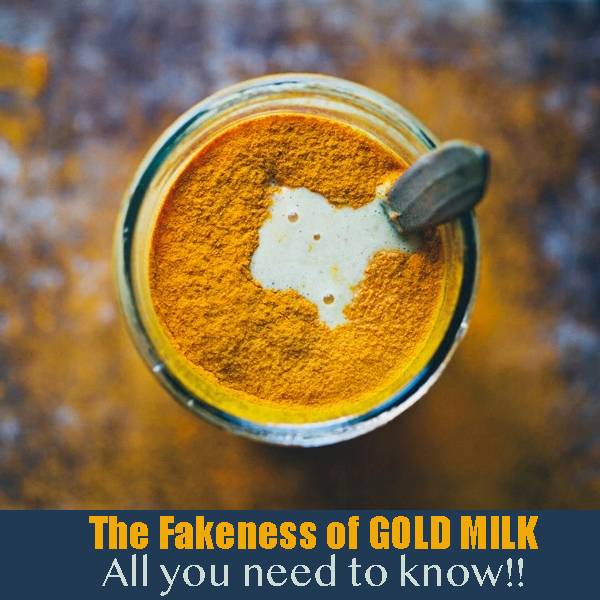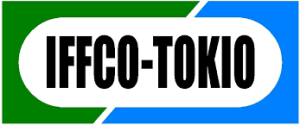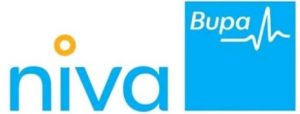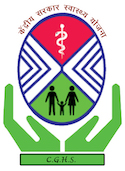6 Natural Ways and 4 Steps to Lower Down Cholesterol
Cholesterol is an essential component of all cell membranes in the body. It plays a key role in the structure and function of the brain and nervous system, as well as being vital to healthy dermal and epidermal membranes. Cholesterol also acts as an antioxidant that helps fight damaging free radicals (damaging agents with unpaired electrons).
What is cholesterol?
The liver manufactures most of our cholesterol supply. When your liver detects additional needs for cholesterol, it pulls from stores in your body instead of manufacturing new cholesterol. This can occur during times of stress or illness when we need more cholesterol to manufacture antibodies or other immune defenses against invaders.
But you should still take steps to maintain normal levels through diet alone because many experts believe that high-cholesterol foods are actually protective with regard to heart disease.
When it comes to diet-induced high cholesterol, there’s no question what should be removed from your diet: refined sugar, flour products, and other processed foods. These not only contribute the greatest amount of dietary fats but also provide very little fiber, vitamins or minerals in return — all things that can help reduce the strain on your liver’s cholesterol production efforts.
Risk Associated with cholesterol
“The big risk factors for coronary artery disease are saturated fat and trans-fatty acids,”
says Dr Michael Koslowski of the Mayo Clinic College of Medicine in Rochester, Minn., who has studied polyunsaturated fatty acids (PUFAs) like those found in fish oil supplements. “Cholesterol intake is not the risk factor it’s been made out to be. Koslowski points to a study published in the New England Journal of Medicine that found no association between dietary cholesterol and either the presence of coronary heart disease or its severity.
One of the most important “cholesterol-raising” foods, eggs, is also one of nature’s most nutrient-dense foods, with an exceptional balance of vitamins, minerals, and protein. Any correlation between high-cholesterol diets and heart disease may have more to do with trans fats than cholesterol itself; this type of fat raises levels higher than naturally occurring fats like those found in whole milk products.
Many studies have demonstrated that higher intakes of omega-3 fatty acids are associated with lower rates of disease and death from cardiovascular disease. Omega-3 fatty acids are essential for heart health; they help fight free radicals and protect the linings of arteries, improve blood flow through the veins, decrease inflammation and encourage new blood vessel growth to injured areas. Fish oil is commonly recommended because it contains both EPA (eicosapentaenoic acid) and DHA (docosahexaenoic acid). Which have shown in many studies to provide these benefits.
What’s a Healthy Cholesterol Level?
Experts recommend that you aim for an LDL cholesterol reading below 130 mg/dL and an HDL level above 45 mg/dL. You need your triglycerides to be less than 150 mg/dL. Because triglycerides are actually carriers for dietary fat. And excessive levels can increase your risk of developing heart disease.
How to Lower High Cholesterol Naturally
There’s a lot you can do to help lower your cholesterol naturally. Consider these tips:
1. Exercise regularly.
Cardiovascular exercise helps to lower cholesterol levels by increasing HDL, the “good” form of cholesterol. It also burns calories and promotes normal weight loss.
Stay active throughout the day. Instead of spending eight hours sitting at your desk. Try to break up that time with more activity breaks (e.g., walking during lunch or taking a walk during breaks). So you don’t develop inactivity-related ailments like blood clots in your legs from prolonged periods of immobility.
2. Quit smoking or avoid secondhand smoke
Smoking also increases your risk of heart disease by increasing your LDL and lowering HDL cholesterol.
3. Maintain a healthy weight
Maintain a healthy weight by keeping your body mass index in the normal range. And eat a balanced diet with plenty of fiber from fruits, vegetables and whole grains; and choosing low-fat proteins like fish, legumes, and skinless chicken breast instead of red meat or processed meats such as sausage or bacon.
4. Alcohol is fatty too
Drink alcohol only in moderation (one glass of red wine a day for women, up to two glasses for men).
5. Reduce your salt intake
The average human being consumes too much sodium each day (3,400 mg/day vs. the recommended limit of 2,300 mg/day). This contributes to high blood pressure and heart disease risk. Aim for less than 1,500 milligrams per day by reducing or eliminating processed foods. Foods that contain sodium like canned soups, frozen dinners, and sandwich meats; choosing fresh vegetables instead of canned ones; checking labels on ethnic foods. One should avoid products containing monosodium glutamate (MSG). These are often added to Asian foods as well as foods labeled “salt-free,” “sodium-free” or “no sodium added.”
6. Avoid Trans fats
Avoid trans fats like those found in margarine, vegetable shortening and many commercial baked goods. Choose fish and olive oil instead of butter and stick to fatty meats that are well trimmed of excess fat (like chicken breast or lean cuts of beef), using a nonstick cooking spray when you cook with these ingredients and avoiding fried foods.
You can achieve optimal levels by supplementing your diet with the omega-3 essential fatty acids EPA/DHA, along with other natural cholesterol fighters such as cocoa polyphenols from dark chocolate, resveratrol from red wine, pomegranate extract, and garlic. And NEVER take cholesterol-lowering medications. These medicines often have serious side effects. Side effects like muscle pain, brain fog, and liver damage.
Not to mention that they are a poor substitute for addressing the fundamental causes of high cholesterol.
What are the side effects of cholesterol-lowering medicines?
Common side effects of cholesterol-lowering medicines include muscle aches, brain fog, and fatigue. More serious side effects include liver damage and loss of libido. In fact, more than 100 published studies have identified a very high risk for muscle injury, including rhabdomyolysis (a breakdown of skeletal muscle tissue) with statin use. The U.S. Food & Drug Administration has issued black box warnings on all the major brands, alerting consumers to this danger: Atorvastatin (Lipitor), Rosuvastatin (Crestor), Simvastatin (Zocor), Pravastatin Sodium Salt (Pravachol), Fluvastatin Sodium Salt (Lescol). Even patients who experience milder side effects have a 1 in 5 chance of prematurely stopping their medication due to muscle pain. These patients get the only advice by doctors- that it’s “just part of the normal process of getting older.”
Yet these medications may be lowering your cholesterol levels by 15-20%, not nearly enough to justify the side effects. There is no evidence that statin drugs prevent heart attacks or strokes in healthy people; they only lower risk by modest amounts for specific groups such as women past menopause or postmenopausal males with existing heart disease. For others, there are safer, more natural alternatives to achieve the same goals — even without having to resort to expensive prescription medications. So what works better than statins? A healthy diet, exercise and supplements!
Fixing High Cholesterol Without Over-the-Counter Medications or Prescription Drugs
Step 1: Dig Out Your Shopping Cart
The first step to lowering cholesterol naturally is to stop buying foods that are bad for your health. The most obvious offenders are chemically rich processed foods. The same kind that has been linked to virtually every major disease plaguing us today. Next time you’re at the supermarket, check out all of the labels on your favorite products; if it includes more than a few ingredients you don’t recognize (especially those with lists of unrecognizable chemicals), put it back on the shelf. You can cut many unhealthy options from your diet by simply avoiding “junk food” and steering clear of the following foods: Deep Fried Foods Enriched Breads & Pastas Processed Meats (hot dogs, sausage, pepperoni and lunch meat) Non-Organic Dairy Products Refined Grains High Sugar Fruit Juices Canned Soups Canned Vegetables Artificial Sweeteners (e.g., Nutrasweet and aspartame) Artificial colors & flavors Baked Goods
Step 2: Stop Cholesterol-Raising Triggers
There are many other factors that can cause elevated cholesterol levels. The most common include cigarette smoking, stress, hormonal imbalances and nutritional deficiencies. Certain medications such as blood thinners also increase your risk of high cholesterol. If you smoke or drink too much alcohol, now is the time to kick the habit. Relaxation techniques such as deep breathing, yoga or tai chi can lower stress levels and improve your overall health. Quit taking blood thinners and discontinue all medications that have not been approved by a doctor. Hormone replacement therapy (HRT) has fallen out of favor in recent years due to its link to breast cancer, but there are two natural approaches that can give you similar results: diet modification and nutrition supplements. If none of these causes apply to you, then try one more step…
Step 3: Take Natural Cholesterol-Lowering Herbs
There is no single herb for lowering cholesterol — they each work in slightly different ways — so combining several may be helpful. Some of the most effective include: Hawthorn (Crataegus oxyacantha), Garlic, Licorice (Glycyrrhiza glabra), Cayenne pepper, Saw Palmetto (Serenoa repens) and Olive leaf extract. If you have a weight problem, then conjugated linoleic acid may help reduce your cholesterol levels as well.
Step 4: Protect Your Heart With These Supplements
A healthy diet is only part of the equation in lowering cholesterol. To reach optimum lipid levels, many people also require supplementation with quality herbal products that address specific needs such as increased energy production or immune support.















